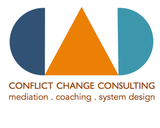This is a great question. For businesses, make sure that you include a dispute resolution clause in your contracts, which provides for mediation. This can save lots of arguing later when you are in a dispute and provide a clear path to mediation.
For individuals, there are many practical lessons you can use in the real world which come from mediation practice. Disputes are inevitable, but how you deal with them is not. By using some of the principles and techniques from mediation you may find that your disputes provide understanding and lead to more meaningful resolutions.
Many mediators also offer conflict coaching for individuals and businesses to teach new approaches to dealing with conflict. This can be a simple method like exploring how our perspective can shape the way in which we react to others. Or it may be offering techniques for asking questions to seek the underlying basis for the argument.
One new area in which mediators are helping organisations and companies is dispute system design (DSD). A mediator will work with an organisation to understand where and how conflict is arising and then work to develop a system to deal with conflict. The motivation is not to stop conflict from happening but to provide a mechanism, which will ensure an efficient and constructive resolution.

